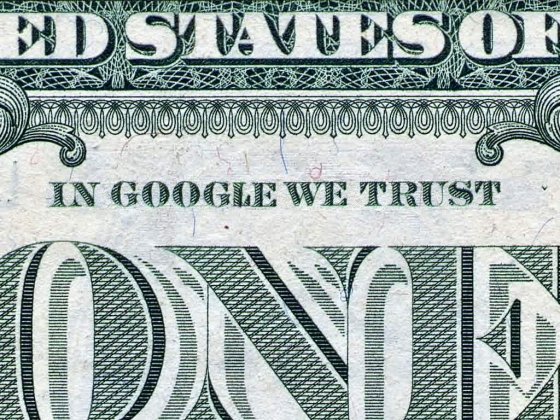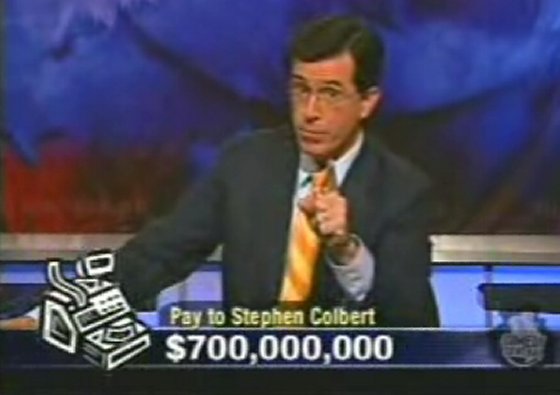What have we learned from the Google-Viacom incessant bickering which ended up in a ruling we all knew before it even started?
After more than three years of arguing, Google/YouTube were found not guilty of copyright infringement given the “safe harbor” provisions in the Digital Millennium Copyright Act (DMCA). DMCA’s “safe harbor” refers to a site not having to police every piece of content that’s posted to its site by its users. It’s the job of the copyright holder to notify the site when their copyright is being violated. Once the site is notified, they’re out of the “safe harbor” and must remove the infringing material.
When Viacom first issued its infamous $1 BILLION lawsuit against Google/YouTube, I appeared on KQED’s “This Week in Northern California” to talk about it.
There’s lots more to the Viacom vs. Google/YouTube story. For a complete detailed rundown, check out Betanews’ great timeline looking back at all the pertinent events. Here are my learnings and questions over the past four years.
Is there an art to picking large random round numbers?
What are we to think of these obviously chosen, not calculated numbers?
Viacom: We’re going to sue you for $1 billion.
Google: It cost us $100 million to defend ourselves against Viacom.
 How do large companies come up with these seemingly large arbitrary numbers? Since so much of this lawsuit has been a media relations game, one can only assume Viacom and Google focus-grouped the numbers on their shareholders.
How do large companies come up with these seemingly large arbitrary numbers? Since so much of this lawsuit has been a media relations game, one can only assume Viacom and Google focus-grouped the numbers on their shareholders.
Where there’s a science and art to pricing products, there must be a similar technique to choosing these large round numbers for lawsuits and expenses to either scare or codify your audience.
Pull it down. Pull it all down.
Four years ago when Viacom requested infringing videos be pulled down, it seemed that Viacom was requesting more videos to be pulled down than Viacom had the rights to pull down. And YouTube didn’t argue. Instead of verifying that it truly was violating Viacom’s copyright, they just pulled down every request Viacom threw their way.

Viacom CEO, Phillipe Dauman
It appeared that one of Viacom’s criteria for pulling down content was the appearance of the properties’ program names in the title of the YouTube video. I personally had a video that I produced entitled “Daily Show Segment on ZDTV.” It was a segment that I produced for the now defunct cable network ZDTV that included interviews with writers and correspondents of “The Daily Show.”
YouTube pulled down the video because Viacom claimed copyright infringement. But it didn’t infringe Viacom’s copyright. They had no rights to it whatsoever. I can only assume that the reason they pulled it down was because they saw the name “Daily Show” in the title. Had they watched just a few seconds of it, they would have quickly known it wasn’t theirs (for more, read the entire story).
There was so much content they wanted pulled down in such a short period of time that I can’t believe Viacom actually had the time or manpower to look at all the content to insure that it was actually violating their copyright.
Similarly, at the time, YouTube had a lean staff and was being inundated by takedown requests that it just wasn’t worth it for them to see if the copyright violation claim was valid. They just took down every takedown request as required by the DMCA. It wasn’t a big deal. They had enough video on their site as it was.
People who had legitimate claims to their videos, like me, were getting their videos pulled down. I guess if you cast a wider net you’ll catch more tuna, but you’ll probably get a few dolphins too.
Today, I’ve been told by a communications VP at Viacom that the number of false positive takedown requests are quite low. Viacom employees actually do look at the content of the videos and my individual case was unique and he didn’t know why they chose to pull mine down. He claims they do make some mistakes today and they correct them as quickly as they can. But he wasn’t there four years ago and couldn’t speak to the process then.
Also at issue four years ago was that video commentary on video content was not as prevalent as it is today. Now it’s not unheard of to see somebody’s video with “The Daily Show” in the title that is purely a commentary about “The Daily Show.”
Why aren’t Google stockholders more furious?
Last year, it was estimated that Google was spending $1.25 million a day operating YouTube. Costs that were not being recouped by the meager revenues. Add on top of those daily operational costs was the purchase price of YouTube, which has been reported to be somewhere between $1.65 and $1.76 billion, and now YouTube admits to the supposed $100 million to defend themselves against Viacom. Add all that up and Google is spending billions on a service that has no foreseeable means to generate a profit.

Google makes money from advertising, because eyeballs are looking at screens with their content and ads on it. Hulu has figured out how to make money from eyeballs looking at video content, why can’t Google?
After last Thursday’s earnings call, there was this exchange between a reporter and Google’s CFO, Patrick Pichette:
QUESTION: Does the Viacom ruling change your ability to monetize (on YouTube)?
RESPONSE: We are still in appeal, so I don’t want to comment on the specifics. What I can say is … with more clarity from this judgment, it gives us more room for experimentation that we didn’t have before. Because, until these rules are clear, you don’t know exactly where the bar is. With that clear bar, we now have much more room for experimentation.
Uggh, if I was a Google stockholder I’d be furious. They’ve been holding onto something for practically four years that’s costing them billions and they’re waiting for a “bar” to be set so they can start “experimenting?” Google and other tech players have been setting industry bars on their own. Why isn’t Google doing it now? To think that a clearly defined criteria by someone else, especially the government, will come around anytime soon is absurd. They’re pushing off their stockholders, and their stockholders should be furious.
YouTubers really hate Viacom
I’m amazed at the vitriol YouTube users have against Viacom. In the video you see above, there are more than 120 comments for which most of them refer to Viacom with profanity. In fact, the two most popular comments as voted by viewers of this video are:
“Fuck Viacom all they think about is money”?
“Money? all they fucking care about Viacom go suck a dick you twats.”
Either people truly hate Viacom, or my viewing audience are complete morons that can only speak in expletives.
What I don’t understand is if they truly hate Viacom, why don’t they show their anger with their wallet? If you hate Viacom so much, stop spending money and viewing their content properties.
Viacom hates its users (or at least they use to)
If it’s evident that viewers of Viacom’s content hate Viacom as a corporation, then it can also be said that Viacom hates its viewers. Or at least they were angry with them three and four years ago when they filed the lawsuit against Google/YouTube.
Historically, Viacom has been successful getting people to pay for its content through traditional means (e.g., watching TV shows, paying tickets for movies, buying DVDs), but they weren’t successful selling through new media. Viacom is doing much better at it now, but back then they were furious that people would go watch a clip of “The Daily Show” or “Colbert Report” on YouTube instead of coming to ComedyCentral.com to see that same clip. The problem back then was that the clips appeared on YouTube faster, were easier to watch, share, and embed.
Today, that situation has changed dramatically as Viacom’s online properties post videos faster in a format that are easy to link to, embed, and share. There’s no need for a fan to capture, encode, and post a video of the “Colbert Report” to YouTube if Viacom is doing it already in a format consumers want.
Technology doesn’t wait for lawyers to figure things out
One of the great things about being a nimble private startup is you don’t have any lawyers around telling you what you can and can’t do. Your only limitation is technology. And what we’ve all discovered is you can figure out and accomplish things a lot faster with technology than you can with lawyers.
The reason for Viacom’s lawsuit is that the media company simply couldn’t figure out how to distribute its content while also making sure everyone got paid. At the time, YouTube wasn’t a public property nor did it have any content assets to protect. Given reduced content issues and complexity, YouTube’s ability to go to market with a video distribution platform was considerably easier.
Viacom’s lawsuit claims that YouTube was creating a safe haven for copyright infringement. Had Viacom offered a usable online video content and distribution for its properties like they are today, this wouldn’t have been an issue. Problem is Viacom simply couldn’t figure it out fast enough. They needed lawyers to figure out all the content, copyright, and payment issues for their properties. There’s no conceivable way they could have ironed out all those issues as quickly as someone who can encode and post a “Daily Show” clip to YouTube.
It wasn’t technology holding Viacom back, it was a bunch of businessmen and lawyers waiting until they could all agree on what money was going to go into whose pocket. While they were sitting around trying to make those decisions, YouTube was slowly building their market share, and getting the audience eyeballs that Viacom would later have to fight for and win back.
Creative Commons photo credit to sdk, Mariano Kamp, sonicbloom, dannysullivan




